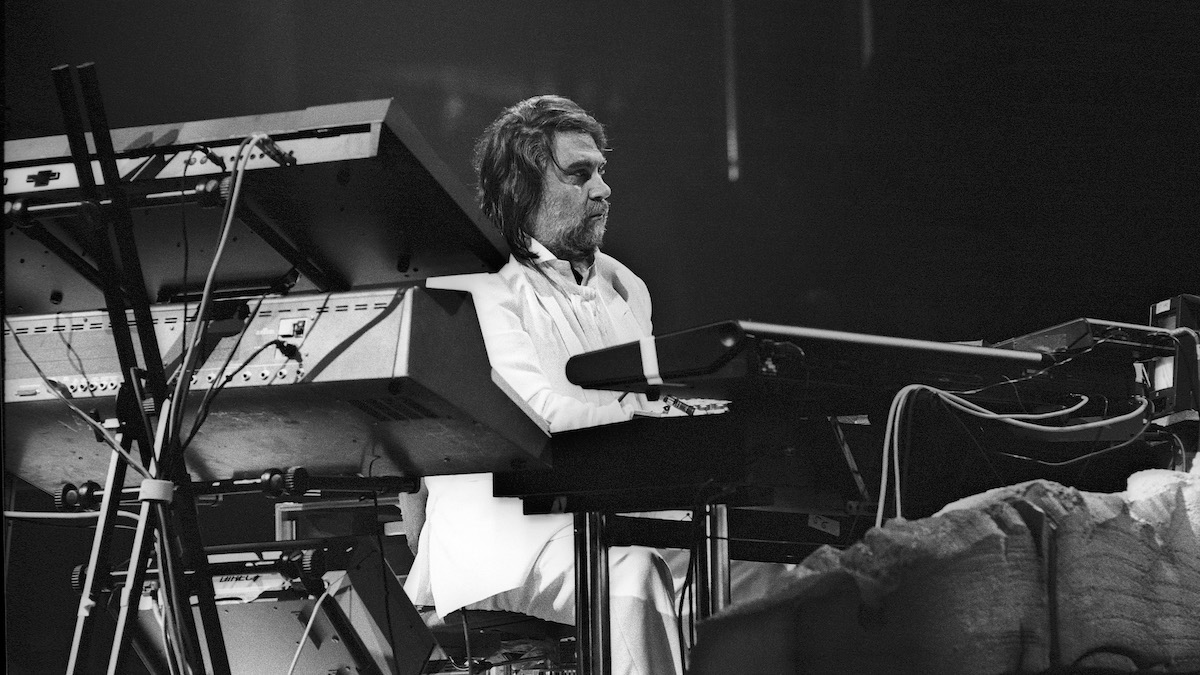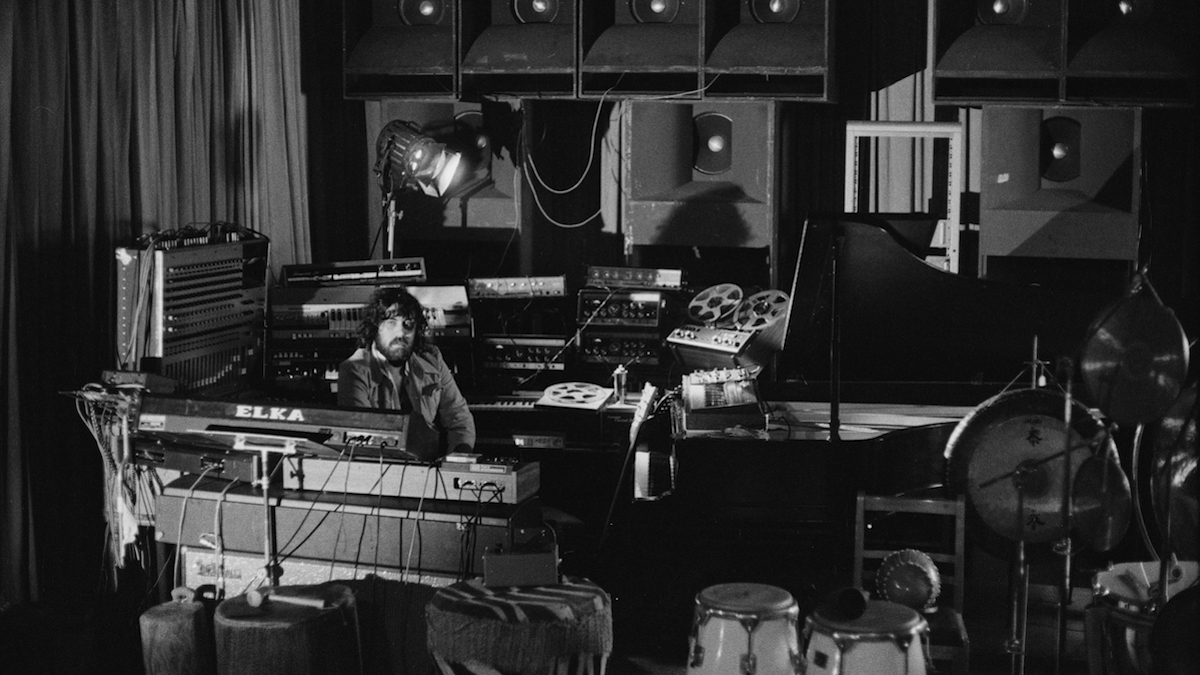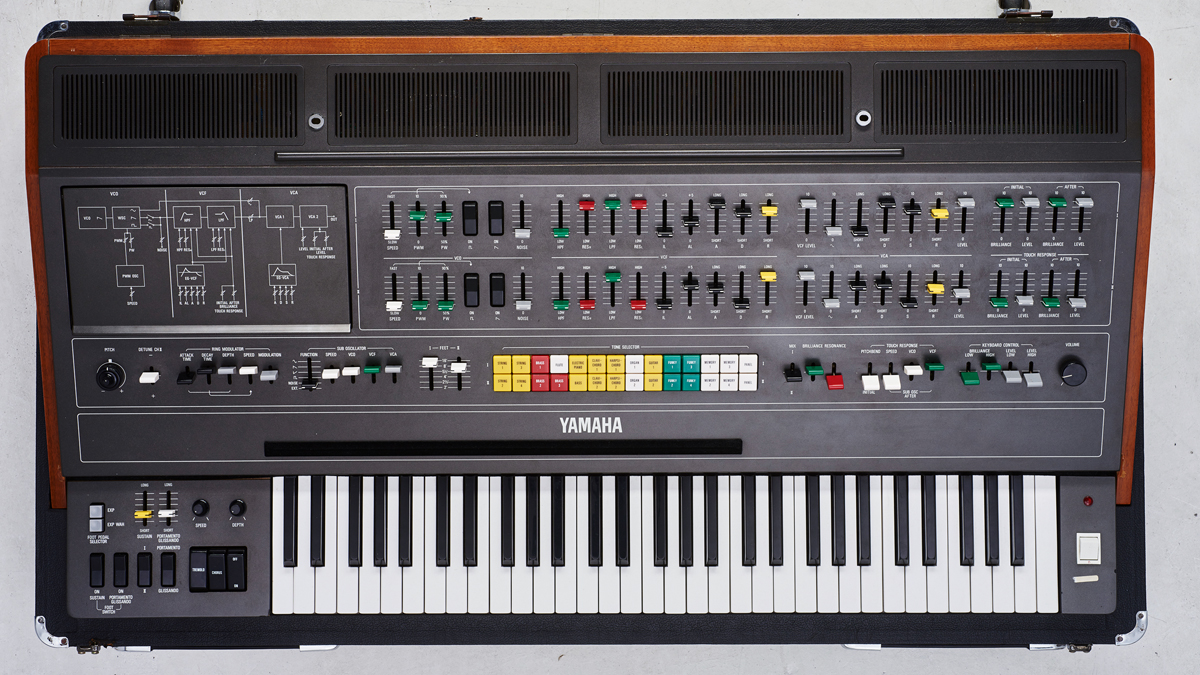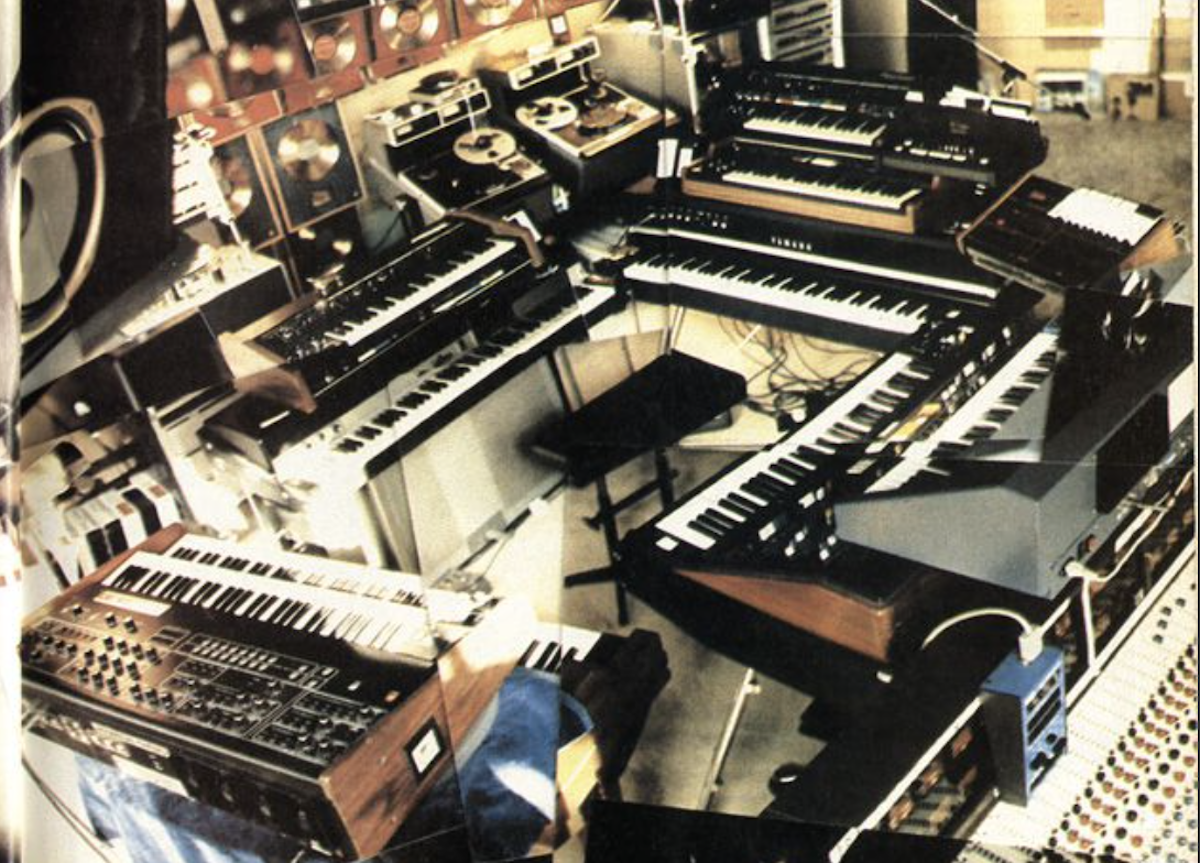"Computers are the worst thing that has happened for the performing musician": synth maestro Vangelis wasn't holding back in this classic studio interview, even giving a certain Yamaha synth a bit of a kicking
The late composer might have been known for his cutting-edge synth use, but he didn't agree with every studio breakthrough
Want all the hottest music and gear news, reviews, deals, features and more, direct to your inbox? Sign up here.
You are now subscribed
Your newsletter sign-up was successful
It's nearly two years since the synth and soundtrack legend Vangelis passed away, and while he didn't grant many interviews in his life – especially studio ones – we've unearthed a 40-year-old-gem that reveals many of his production likes… and dislikes.

Perhaps one reason that Vangelis rarely spoke on music matters was that when he did, his quotes would sometimes land him in hot water.
When I've said things in the past, it's always got me into trouble. So now I avoid talking about who, why and when
Vangelis
"When I've said things in the past," he told Sounds International magazine in 1979, "good about one person and bad about another, it's always got me into trouble. So now I avoid talking about who, why and when."
The interviews were rare, then, but when you did get one, they'd usually be highly entertaining as the Greek composer let rip on certain pet loves and hates.
And why not? Vangelis certainly earned the right to do and say whatever he pleased over a career that would span six decades, and see him achieve massive success in bands (like Aphrodite's Child), as a duo (with Jon Anderson), as a solo artist (with a dozen albums), and, of course, as a soundtrack composer.
Just say his name and you'll hear those haunting and majestic themes from Blade Runner and Chariots of Fire, just two movies he scored from over a dozen. (And if you don't hear them, just press Play here.)
The interview we've unearthed via Muzines from 1984 is a wide-ranging Vangelis chat in Electronics & Music Maker magazine. In it he bigs up the Yamaha CS-80 synth used in so many of his soundtracks, calling it, "the most important synthesiser in my career, and for me the best analogue synthesiser design there has ever been".
Want all the hottest music and gear news, reviews, deals, features and more, direct to your inbox? Sign up here.
The DX7 is a commercial little toy. It is to the synth world what the Renault 5 is to cars.
Vangelis
However, at the time he saw the synth market as being slightly underwhelming, picking on Yamaha's flagship DX7, for example, and calling it "nice" but a "commercial little toy". He then declared its popularity as being on a par with an average car.
"A popular instrument, it is to the synth world what the Renault 5 is to cars," he said, but then added: "The Renault 5 was a hit because it was very versatile and you could park it anywhere. What I really don't like about it is that, for Yamaha, it's a step back from the CS-80."
There was also some insight into Vangelis' other synths and their history. His first was "a Korg 700 monophonic. It's a lovely little machine: I still have it."

And finally on the synth front, Vangelis even tried to predict the future, stating that while 1984 wasn't exactly a vintage year for the synth, maybe the future would deliver the synth he believed Yamaha should have made.
The piano is the result of about 200 years' continuous development, but there's not one synthesiser that's been developed over anything like that time
Vangelis
"When Yamaha created the CS-80,"Vangelis said, "I expected them to refine it and improve it, make it lighter, put new sounds on it, but they didn't. I think what I'm saying will make more sense in 10 or 15 years' time.
"By then, someone somewhere should have created The Instrument – the ultimate synthesiser. I don't mean in terms of sound, because we can create anything we want these days, but in terms of being an extension of the performer – a true performance instrument."
"If you look at the piano," Vangelis explained, "it's the result of about 200 years' continuous development, but there's not one synthesiser that's been developed over anything like that length of time.
"When a synthesiser comes out, it's Top of the Pops for two years, then it's scrapped and replaced by another one with more memories or whatever. When manufacturers stop adopting that attitude, that's when they'll get closer to creating the sort of instrument I'm after - a true performance synthesiser."

Last but not least, Vangelis had it in for another piece of studio technology, then in its infancy, the computer…
They should have fitted a bigger, better keyboard, and made it more human, easier to use
Vangelis
"In terms of communication, computers are the worst thing that has happened for the performing musician. Why? Because you have to learn to talk to the computer. Having to talk to a piece of equipment moves you one step away from spontaneous creation, things are no longer immediate. When you want to play a piano, you just sit down and play it - you don't have to talk to it."
We've never spoken to a computer, aside from shouting at it maybe, but this was 1984 and computers were not exactly the studio tools we know and love today (most of us). What Vangelis was talking about the process of inputting data to get anything out of the all new Fairlight or Emulator samplers.
"The new Emulator is a bit of a let-down to me," he said. "They should have fitted a bigger, better keyboard, and made it more human, easier to use."
Certainly, interviewer Dan Goldstein seemed bemused by Vangelis' tech tirade, but did point out that a composer who produces such warm and human synth music should also be one who puts "immediacy and response highest on his list of synthesiser priorities".
It is, after all, those traits in his music that Vangelis will be remembered for, and for many years to come. We're still waiting for "The Instrument – the ultimate synthesiser" he predicted, though.



Andy has been writing about music production and technology for 30 years having started out on Music Technology magazine back in 1992. He has edited the magazines Future Music, Keyboard Review, MusicTech and Computer Music, which he helped launch back in 1998. He owns way too many synthesizers.

